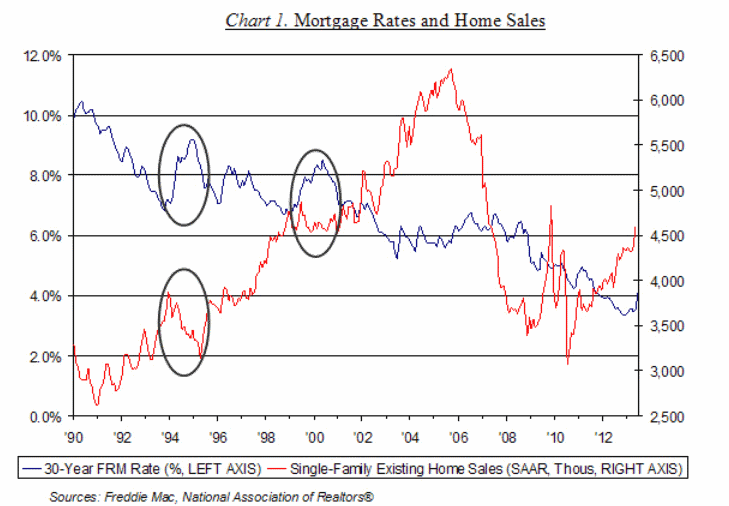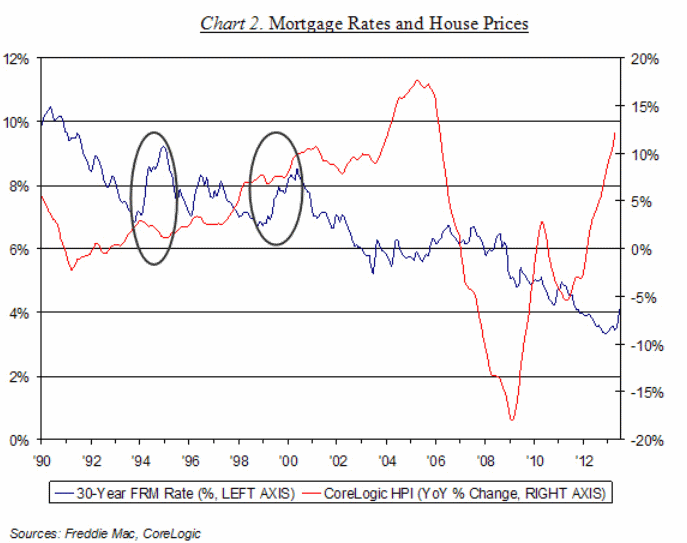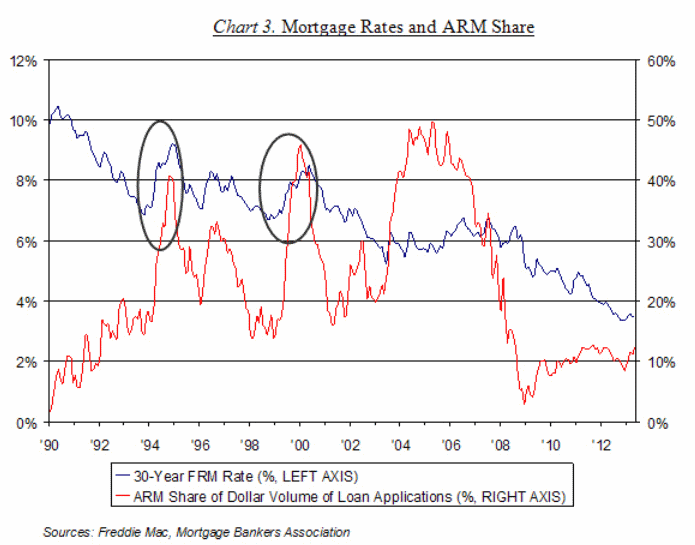Blog

Rate Increases More Likely to Impact Sales than Home Prices
Is the 116 basisrnpoints (bps) rise in rates from 3.35 percent to 4.51 percent withinrnthe May 3 to July 12th</supenough to stall the housing recovery? Fannie Mae’s Mark Palim says there is no historical precedent for knowing the impactrnon the housing market of an interest rate change, either up or down,rnbecause of a Federal Reserve policy of quantitative easing. Suchrnlarge movements themselves do have a history however and it suggestsrnthat while there is little correlation of rate changes with homernprices, rapid rate increases do contribute to a decrease in homernpurchase volume and an increase in the use of adjustable raternmortgages (ARMs). </p
 </prn
</prn
</p
Palim references two periods when rates increasedrnmeaningfully in a sufficiently short period of time to have an impactrnon the housing market, October 1993 to December 1994, when mortgagernrates increased to 9.20 percent from 6.83 percent, a 237 bps changernand October 1998 to May 2000, when there was an 180 bps increase fromrn6.71 percent to 8.51 percent.</p
 </p
</p
During the first period the rising trend in existing home salesrnwas reversed. (See Chart 1.) However, the impact on home prices wasrnmuted. The rate of appreciation slowed, but year-over-year pricernchanges remained positive. (Chart 2.) The second period lasted 19rnmonths, a smaller and more gradual change than in the first instancernwhich appears to have led to a more muted housing market response. The pace of home sales and rate of increase in house prices movedrnsideways rather than changing course entirely. </p
 </p
</p
In both periods there was a noticeable increase in the marketrnshare of ARMs, but one that reversed itself once the decline inrnfixed-rates resumed. Palim says the limitations on ARMs under thernnew Qualified Mortgage rule and the still historically low fixedrnrates may cause a more muted increase in the ARM share of the marketrnthis time than in prior periods of rising rates.</p
He concludes that the increase in mortgage rates to date (116 bpsrnin nine weeks) is not expected to be sufficient to choke off thernhousing and economic recovery. The prior periods may provide somernguidance on the magnitude, speed, and duration of an increase inrnmortgage rates that would be of greater concern for the recovery.
All Content Copyright © 2003 – 2009 Brown House Media, Inc. All Rights Reserved.nReproduction in any form without permission of MortgageNewsDaily.com is prohibited.
Latest Articles
By John Gittelsohn August 24, 2020, 4:00 AM PDT Some of the largest real estate investors are walking away from Read More...
Late-Stage Delinquencies are SurgingAug 21 2020, 11:59AM Like the report from Black Knight earlier today, the second quarter National Delinquency Survey from the Read More...
Published by the Federal Reserve Bank of San FranciscoIt was recently published by the Federal Reserve Bank of San Francisco, which is about as official as you can Read More...

Comments
Leave a Comment